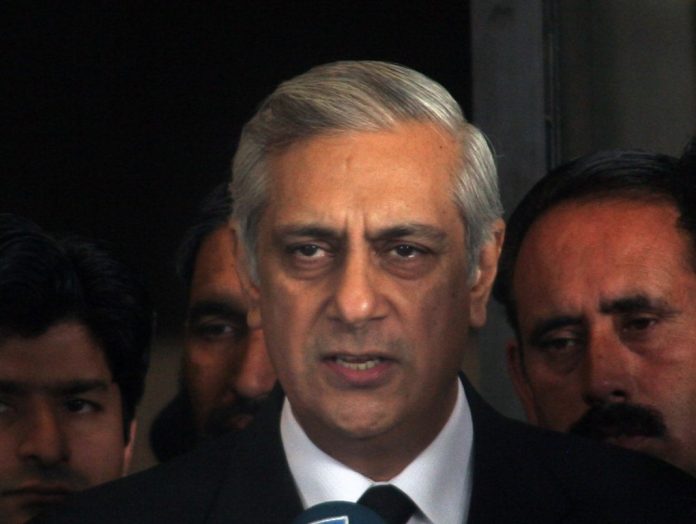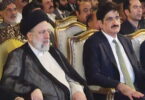F.P. Report
ISLAMABAD: Special Assistant to the Prime Minister (SAPM) on Accountability Irfan Qadir on Monday dispelled a notion that both the government and the Parliament were at odds with the top judiciary. “There are some rumours that the government and the Parliament are against the Supreme Court, which are totally baseless and have no reality. The government has desire to see a strong judiciary,” the SAPM said while addressing a news conference.
“I want to inform the nation that the present government desires to strengthen judiciary and the Supreme Court as we have no friction against the courts, instead we are standing with the apex court.” However, he said, being the mother of all the institutions, the Parliament was the supreme forum and implementation of its decisions was crucial to run the affairs of the country in an effective way.
As regards the appointment of judges in the Supreme Court, he said, judges should be appointed on the basis of “seniority-cum-fitness”. He said all the institutions were bound to follow the Constitution. In the mature democracies across the globe, he said, all the institutions were working within their domains enshrined in their constitutions.
“We all are also bound to work according to the Constitution of our country and following the Constitution always enhances everyone’s respect,” he remarked. Irfan Qadir said he had expressed his reservations when the government of Yousaf Raza Gillani was removed by the apex court. He was of the view that the Parliament had the power to remove the prime ministers through a no-confidence motion, while no other institution had such power.
Recalling the lifetime disqualification of Muhammad Nawaz Sharif in the Panama Papers case, he said it had not been written in the Constitution. Nawaz Sharif, he added, was also barred from heading the party which was against the law. Irfan Qadir asserted that as per Article 184/3, the Supreme Court could take the so-moto notice, not the chief justice of the honourable court.
He said as per the Constitution, no one but the Election Commission of Pakistan was empowered to announce the date of elections. To a question, he said constitutional courts should be established to hear political cases as such a practice was being followed across the globe. Constitutional experts including ex-judges, parliamentarians, media, business and other sectors should be included in the constitutional courts, he added.







